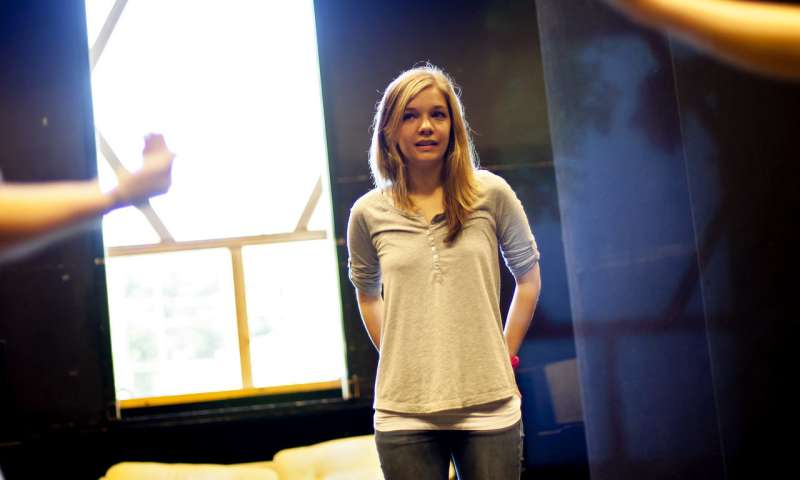Learning through drama helps nurses face the future

Learning through drama has unique potential for preparing future nurses and specialist nursing staff for their future professional role, as shown by research from Sahlgrenska Academy, Sweden. Using role play and exploring various healthcare situations enables nursing students to develop skills that are hard to achieve through traditional education.
"Even if you yourself haven't experienced a particular situation in real life, you've still acted it out, experimented with it, discussed it and known it. Experiences stay with you, the knowledge gets embodied, and you're then prepared in a different way when you go out and work as a nurse," says Susanna Höglund Arveklev, Ph.D. in caring sciences, with a background in psychiatric nursing.
Her dissertation is based on interviews with students and analyses of group examinations. This basis as a whole reflects just over 230 students' experiences of drama during nursing education at first and second cycle.
One example is the exercise where the group of students, in pairs and in parallel, improvise a fictitious meeting between a patient and a nurse at a healthcare clinic. Time is tight, and the nurse is perhaps forced to move the conversation in a direction that the patient doesn't want. How does it feel to work under this kind of time pressure? And what happens when the students then swap roles with each other?
Another example of how drama can be used in education is through Forum Play, a form of role play where the students' experiences from clinical practice can be explored. A smaller group dramatize a difficult situation from real life, with other course mates as spectators. The situations often deal with ethical dilemmas, conflicts and communication difficulties within the staff group or in encounters with the patient and their relatives.
"The dramatized situation is acted out for the spectators during a few minutes and must always finish when it is at it most difficult – the situation cannot be resolved. Then the situation is played out a second time, and the spectators are invited to at any point, say 'stop', go in and take on one of the roles; for example as the nurse who has ended up in an ethical dilemma between the doctor and relatives about the patient's standard treatment. Then you keep on acting for a bit longer, and see what happens. How does the situation change? What happens when the characters act in a different way?
Susanna Höglund Arveklev states that learning through drama allows students to explore themselves in their forthcoming professional roles. In the interaction with others, they can see their own strengths and weaknesses, and what thoughts, feelings and reactions are evoked by different care situations.
The interaction creates insight into and understanding of other people's perspective. The reflections and conversations that follow often make it easier for the students to understand and relate to the theoretical course content. The students mature and gain better preparation to develop their professionalism.
"There are many theoretical concepts in caring science that students think are a bit abstract and hard to grasp. What is trust? What is comfort? What is suffering? And what does it mean to actively listen? Through drama, you can train and develop interpersonal skills and the ability to cooperate with other professions. It is important to be able to practice interaction and change perspective in an environment where it's OK to make mistakes," says Susanna Höglund Arveklev.
















